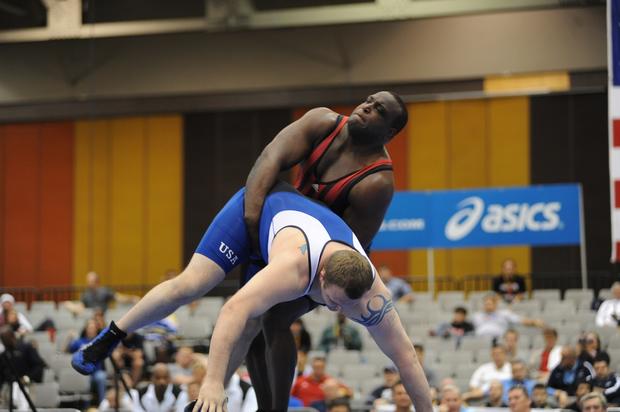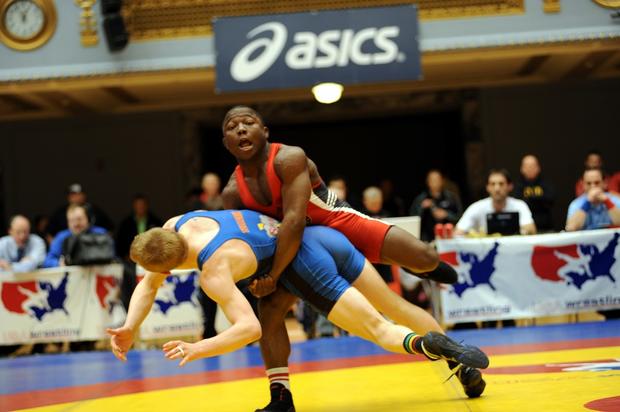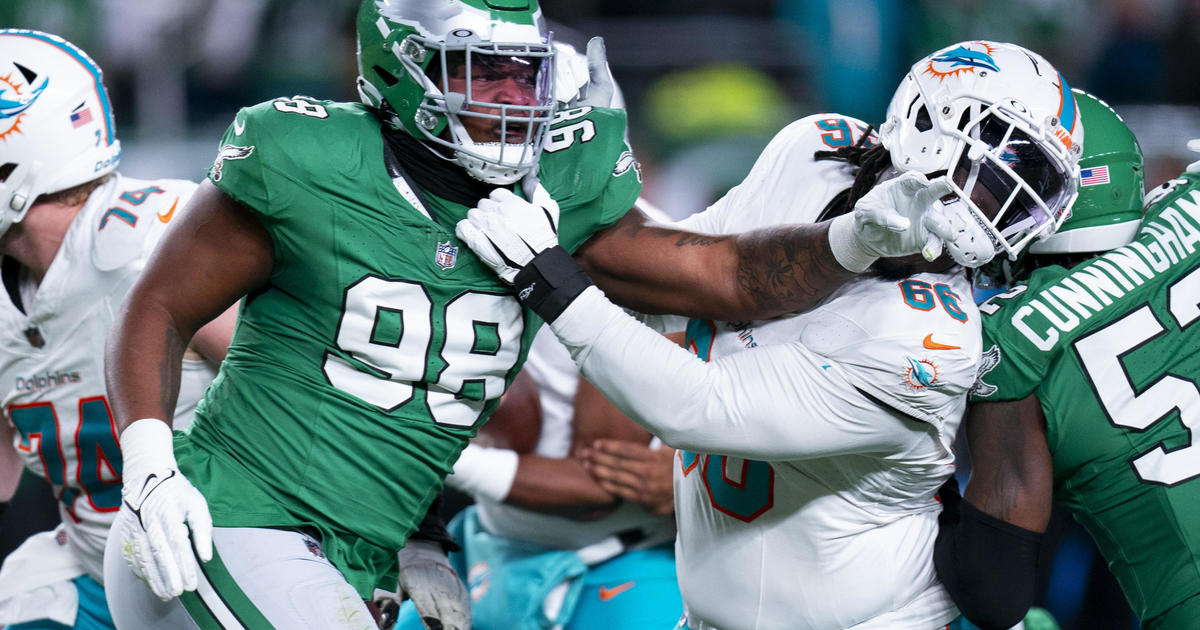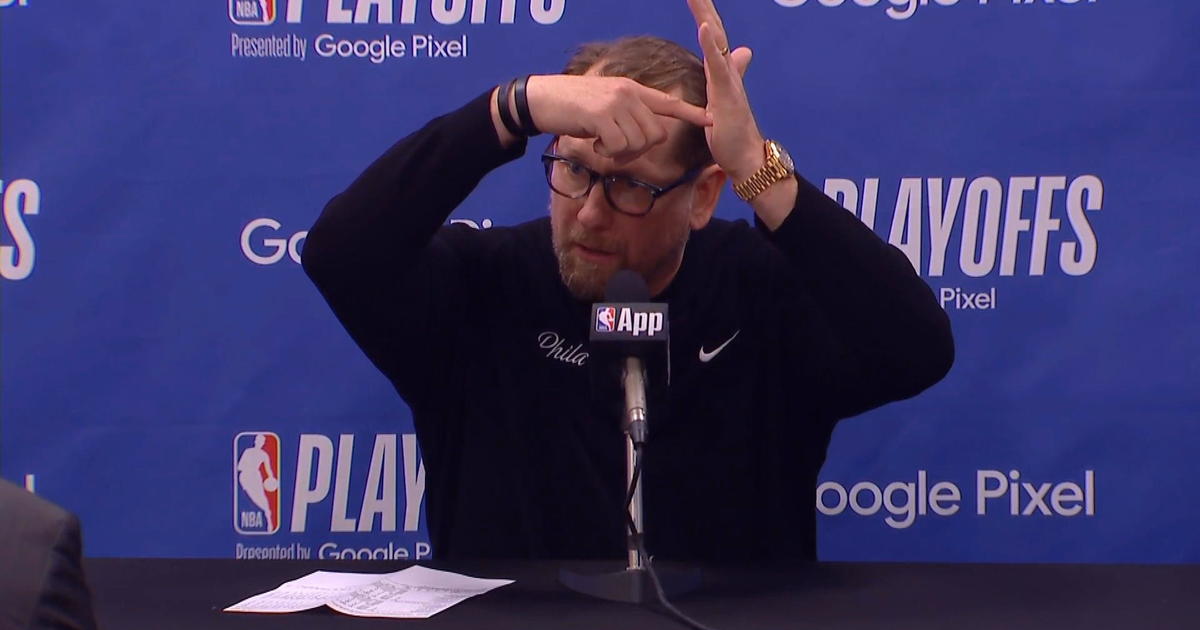U.S. Army Wrestlers Loading Up For London
By Joseph Santoliquito
COLORADO SPRINGS, CO (CBS) — It all starts in "the room," a grunt-filled, sweat flying, rubber-floored area where you're only as good as your competition. For a Greco-Roman wrestler, "the room" is everything. It's where they get tested, while testing new moves.
Spenser Mango, Justin Lester and Dremiel Byers are fortunate enough to be part of a great "room," as members of the United States Army Greco-Roman wrestling team, perennial national champions that consistently produce Olympic-caliber wrestlers.
Mango, Lester and Byers comprise half of the six-member U.S. Greco-Roman wrestling team that will be leaving for the Olympics next month in London, England. The trio has benefitted greatly from the U.S. Army's World Class Athlete Program (WCAP).
Their paths to reach this point, however, are as divergent as they are. Mongo and Lester have more similarities than Byers, who is 37 and will be competing in the 120-kilogram division (264 pounds) in what will probably be his last Olympiad.
Byers, the 2002 world champion and silver medalist at the 2009 world championships, is a 10-time U.S. open champion. He's been in the Army since 1994 and he realizes from his 2008 Olympic experience in Beijing, China that time is ticking. London could be it.
"In 2008, that was definitely an eye opener," said Byers, from Kings Mountain, North Carolina, who never heard of Greco-Roman wrestling before he entered the army and may be deployed after competing in London. "The match that I lost I just didn't execute the things that I was good at and I paid the ultimate price for that. I'll never forget I came off the mat with my head down and no victory.
"It makes you appreciate the fact that you don't have time and plan out the opportunities. I had to seize it and bring things with a sense of urgency and didn't. It's fuel, believe me, it wasn't in it for me to win that day, and I knew that, but what bothers me is that I wasn't at my best. I didn't show what I could really do and that's what bothers me. I understand now that anything around the Olympic Games is irrelevant, other than me getting my medal. That's all I have to do is let loose and I'll come home with some hardware."
It gnaws at Byers that his late grandfather wasn't able to see him compete in 2008—and like Mango and Lester—he hold a greater, deeper sense he'll carry on the mat.
"What means a lot to me are the soldiers who I used to work with that are over there deployed and check back," Byers said. "I had a guy tell me that they're going on the getonthemat.com and looking me up to see what I'm doing, and that they're proud that they know me. That means a lot. This guy one I worked with, a tough dude, I mean tough, and he's in Afghanistan tells 'I'm proud of you. I was like, what! I'm proud of you.' That kind of stuff fuels me. It's why it's not going to be just my medal.
There are some people out there that want to see this happen as much as I do; I want that to happen, and I want to make it happen. I plan on being deployed right after London."
Mango, who placed eighth at the Beijing Games, is headed back at 121 pounds. He doesn't have the distinguished history as Byers, but he has a general idea of what's ahead. He was introduced to Greco-Roman wrestling in high school. He went on to graduate with a degree in physical education and a minor in health and nutrition from Northern Michigan University, which sponsors the U.S. Olympic Education Center.
From there, Mango joined the U.S. Army in 2010.
"It's been a worthwhile move for me," said Mango, 25, originally from St. Louis, Missouri. "The staff makes sure that everything is right here, where we have nutritionists and cardio machines. We can focus on training, but we are still soldiers first. I did have to go through basic training and I knew what I was getting into.
"The Army is a different life, but me being a wrestler and an athlete, you have to lead a disciplined life. And for wrestlers, and athletes, it's an easy transition. I started in 2010 and I'll be done in 2013, but I plan on re-enlisting and I plan on continuing wrestling for the army. It's hard to say whether or not I want to make the army a career, and wrestle as long as I can. But I do plan on a deployment, and I've known that since I started."
Mango's grandfather was a Purple Heart recipient in World War II.
This will be a whole new experience for the 28-year old Lester, who will wrestle at 66 Kg (145½ pounds). He was a repeat bronze medalist in the 2006 and '07 world championships and is a four-time U.S. national champion.
Like Mango and Byers, he came into Greco-Roman late, as opposed to the former Soviet bloc competitors who get introduced to the sport soon after leaving the womb.
"Yes, that's what we're up against," Lester said, laughing. "The change from freestyle to Greco-Roman is like apples and oranges. You go from being able to attack the whole body to using only the upper body in all aspects. It's like soccer and basketball. Both are sports that use round balls, but they're way too different objectives. It's still wrestling and you're still competing, even though a lot of techniques are different. I feel Greco-Roman is a little harder because you have to be a little more creative to score."
And like Mango and Byers, Lester is going to London with more than just himself in mind: "I have that uniform now and I realize there are a lot of guys across the water doing the ultimate sacrifice for me, for all of us," he said. "That's who we're doing this for. It's not just about me anymore. It's about my family, it's about my friends, and ultimately, it's about those guys overseas making that sacrifice for all of us."





